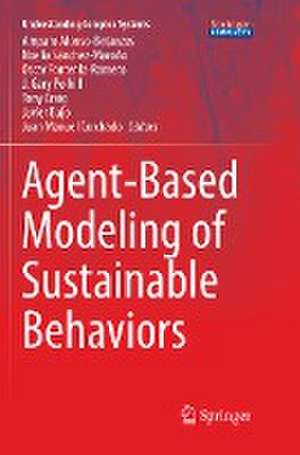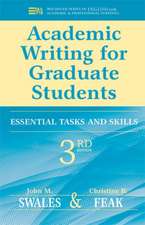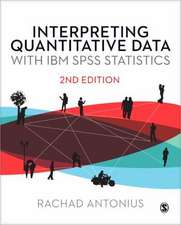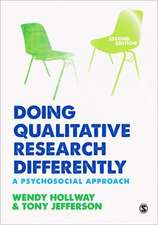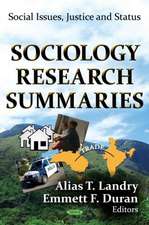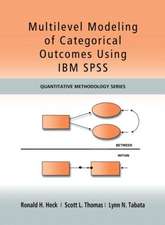Agent-Based Modeling of Sustainable Behaviors: Understanding Complex Systems
Editat de Amparo Alonso-Betanzos, Noelia Sánchez-Maroño, Oscar Fontenla-Romero, J. Gary Polhill, Tony Craig, Javier Bajo, Juan Manuel Corchadoen Limba Engleză Paperback – 13 iul 2018
This selection of papers will be of interest to social scientists who wish to learn more about agent-based modeling as well as experts in the field of agent-based modeling.
| Toate formatele și edițiile | Preț | Express |
|---|---|---|
| Paperback (1) | 526.50 lei 6-8 săpt. | |
| Springer International Publishing – 13 iul 2018 | 526.50 lei 6-8 săpt. | |
| Hardback (1) | 702.05 lei 6-8 săpt. | |
| Springer International Publishing – 24 ian 2017 | 702.05 lei 6-8 săpt. |
Din seria Understanding Complex Systems
- 18%
 Preț: 1112.30 lei
Preț: 1112.30 lei -
 Preț: 439.25 lei
Preț: 439.25 lei - 18%
 Preț: 1119.38 lei
Preț: 1119.38 lei - 15%
 Preț: 401.82 lei
Preț: 401.82 lei - 18%
 Preț: 1247.26 lei
Preț: 1247.26 lei - 15%
 Preț: 641.20 lei
Preț: 641.20 lei - 15%
 Preț: 642.68 lei
Preț: 642.68 lei - 15%
 Preț: 651.51 lei
Preț: 651.51 lei - 18%
 Preț: 946.55 lei
Preț: 946.55 lei - 18%
 Preț: 947.98 lei
Preț: 947.98 lei - 20%
 Preț: 650.27 lei
Preț: 650.27 lei - 18%
 Preț: 952.09 lei
Preț: 952.09 lei - 18%
 Preț: 957.13 lei
Preț: 957.13 lei - 18%
 Preț: 943.88 lei
Preț: 943.88 lei -
 Preț: 398.35 lei
Preț: 398.35 lei - 5%
 Preț: 1417.54 lei
Preț: 1417.54 lei - 15%
 Preț: 648.42 lei
Preț: 648.42 lei -
 Preț: 387.75 lei
Preț: 387.75 lei - 18%
 Preț: 1133.76 lei
Preț: 1133.76 lei - 18%
 Preț: 948.16 lei
Preț: 948.16 lei - 20%
 Preț: 655.85 lei
Preț: 655.85 lei - 18%
 Preț: 1113.09 lei
Preț: 1113.09 lei - 20%
 Preț: 655.53 lei
Preț: 655.53 lei - 15%
 Preț: 653.00 lei
Preț: 653.00 lei - 18%
 Preț: 1392.77 lei
Preț: 1392.77 lei - 18%
 Preț: 1010.48 lei
Preț: 1010.48 lei - 18%
 Preț: 955.56 lei
Preț: 955.56 lei -
 Preț: 384.22 lei
Preț: 384.22 lei - 18%
 Preț: 950.66 lei
Preț: 950.66 lei - 15%
 Preț: 638.43 lei
Preț: 638.43 lei - 15%
 Preț: 644.49 lei
Preț: 644.49 lei - 15%
 Preț: 647.40 lei
Preț: 647.40 lei - 15%
 Preț: 649.06 lei
Preț: 649.06 lei - 15%
 Preț: 639.25 lei
Preț: 639.25 lei - 15%
 Preț: 643.65 lei
Preț: 643.65 lei - 18%
 Preț: 960.78 lei
Preț: 960.78 lei - 15%
 Preț: 649.87 lei
Preț: 649.87 lei - 15%
 Preț: 645.47 lei
Preț: 645.47 lei
Preț: 526.50 lei
Preț vechi: 619.42 lei
-15% Nou
Puncte Express: 790
Preț estimativ în valută:
100.76€ • 104.60$ • 84.02£
100.76€ • 104.60$ • 84.02£
Carte tipărită la comandă
Livrare economică 25 martie-08 aprilie
Preluare comenzi: 021 569.72.76
Specificații
ISBN-13: 9783319834931
ISBN-10: 3319834932
Ilustrații: XVII, 257 p. 86 illus., 67 illus. in color.
Dimensiuni: 155 x 235 mm
Greutate: 0.39 kg
Ediția:Softcover reprint of the original 1st ed. 2017
Editura: Springer International Publishing
Colecția Springer
Seria Understanding Complex Systems
Locul publicării:Cham, Switzerland
ISBN-10: 3319834932
Ilustrații: XVII, 257 p. 86 illus., 67 illus. in color.
Dimensiuni: 155 x 235 mm
Greutate: 0.39 kg
Ediția:Softcover reprint of the original 1st ed. 2017
Editura: Springer International Publishing
Colecția Springer
Seria Understanding Complex Systems
Locul publicării:Cham, Switzerland
Cuprins
Psychologically Plausible Models in Agent-Based Simulations of Sustainable Behavior.- Modelling Everyday Pro-Environmental Norm Transmission and Diffusion in Workplace Networks.- Empirically-Derived Behavioral Rules in Agent-Based Models Using Decision Trees Learned From Questionnaire Data.- The Implementation of the Theory of Planned Behavior in an Agent-Based Model for Waste Recycling: A Review and a Proposal.- Social Simulations Through an Agent-Based Platform, Location Data and 3D Models.- An Intersection-Centric Auction-Based Traffic Signal Control Framework.- Agentdrive: Agent-Based Simulator for Intelligent Cars and its Application for Development of a Lane-Changing Assistant.- City Parking Allocations as a Bundle of Society-Aware Deals.- Sustainable Farming Behaviours: an Agent Based Modelling and LCA Perspective.- Agent-Based Simulation of Electricity Markets: Risk Management and Contracts for Difference.- Energy Management in the Smart Grids via Intelligent Storage Systems.
Textul de pe ultima copertă
Using the O.D.D. (Overview, Design concepts, Detail) protocol, this title explores the role of agent-based modeling in predicting the feasibility of various approaches to sustainability. The chapters incorporated in this volume consist of real case studies to illustrate the utility of agent-based modeling and complexity theory in discovering a path to more efficient and sustainable lifestyles. The topics covered within include: households' attitudes toward recycling, designing decision trees for representing sustainable behaviors, negotiation-based parking allocation, auction-based traffic signal control, and others.
This selection of papers will be of interest to social scientists who wish to learn more about agent-based modeling as well as experts in the field of agent-based modeling.
This selection of papers will be of interest to social scientists who wish to learn more about agent-based modeling as well as experts in the field of agent-based modeling.
Caracteristici
Includes the latest work on agent-based modelling of sustainable lifestyles and green economies Contains detailed instructions on the usage of the models contained within as well as on-line supplementary material Demonstrates agent-based modelling using real case studies Includes supplementary material: sn.pub/extras
